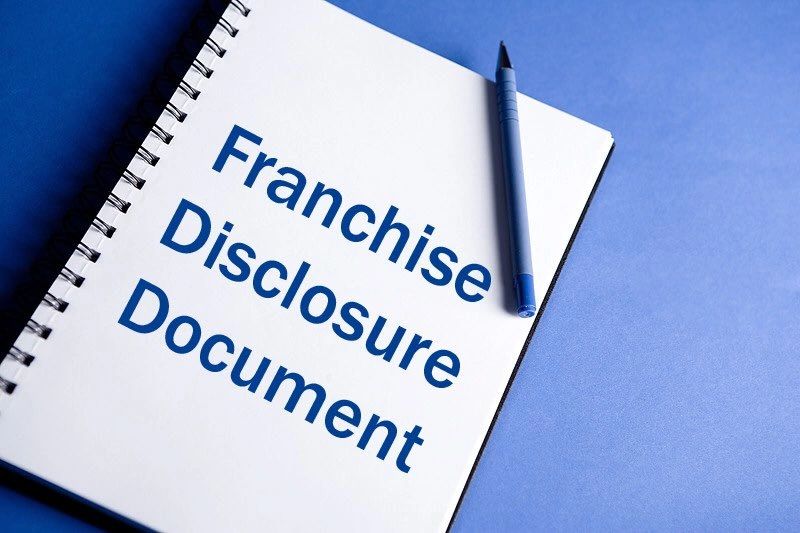Table of Contents
Franchise Disclosure Documents: Everything You Need to Know
Franchise Disclosure Documents (FDD) play a critical role in the franchise buying process, serving as a blueprint that outlines the relationship between franchisors and franchisees. Whether you are a franchisor looking to sell a franchise or a prospective franchisee interested in buying one, understanding the contents and implications of an FDD is vital.
For those seeking guidance, lawyers for Franchise Disclosure Documents can help interpret and ensure you comply with these essential legal requirements. At SK Legal, we provide thorough legal support to navigate the complexities of franchise law, helping both franchisors and franchisees make informed decisions.
What Is a Franchise Disclosure Document?
A Franchise Disclosure Document is a legal requirement in many countries, including Canada and the United States, designed to provide potential franchisees with key information about the franchise they are interested in. It contains a variety of mandatory disclosures, which cover everything from the franchisor’s business history to financial statements.
The purpose of the FDD is to create transparency between franchisors and potential franchisees, allowing the latter to make informed decisions about their investments.
In Canada, the provinces of Alberta, Ontario, and British Columbia have franchise legislation that mandates the use of FDDs. For example, Alberta’s Franchises Act outlines the key elements that must be disclosed. Failing to provide an FDD or supplying incomplete information can lead to severe legal penalties for franchisors.
Key Sections of a Franchise Disclosure Document
An FDD is typically divided into multiple sections, with each one providing specific information that will help the franchisee evaluate the business opportunity. Some of the most important sections include:
- Corporate Information of the Franchisor
This section introduces the franchisor, including their corporate structure, history, and business experience. It should give the franchisee a solid understanding of who they are potentially going to work with. - Business Experience
Here, the franchisor provides details about its leadership team, including directors, officers, and key managers. It’s important to know whether the people running the franchise system have the necessary experience. - Franchisee Information
This part lists existing franchisees, including their contact information. It allows prospective buyers to reach out to current or former franchisees to ask about their experience. - Initial and Ongoing Fees
Franchisees should be fully aware of all the fees they will need to pay—both upfront and throughout their agreement. This section covers franchise fees, royalties, marketing contributions, and other payments. - Litigation and Bankruptcy History
If the franchisor or any of its officers have been involved in litigation or bankruptcy, it must be disclosed in the FDD. This provides the potential franchisee with a clear understanding of any legal risks associated with the franchise. - Franchisee Obligations
This section explains the duties and obligations of the franchisee, covering everything from day-to-day operations to adherence to brand standards and guidelines. - Financial Performance
While not mandatory, franchisors may include a financial performance representation to give potential franchisees an idea of what they can expect in terms of earnings. Any claims made must be substantiated and presented clearly. - Franchise Agreement
Finally, the FDD includes the actual franchise agreement, laying out the specific terms and conditions under which the franchisee will operate the business.
Why Franchise Disclosure Documents Matter
FDDs offer several benefits to both franchisors and franchisees, helping ensure that both parties are fully aware of their roles, obligations, and expectations. Here’s why these documents are crucial:
For Franchisees
An FDD provides potential franchisees with the information they need to evaluate whether the investment is worth the risk. By reading the FDD, franchisees can learn more about the franchisor’s financial health, history, and the level of support they will receive.
Imagine investing in a franchise without knowing that several locations have closed down recently or that the business is involved in ongoing litigation. The FDD prevents these unpleasant surprises, allowing franchisees to make well-informed decisions.
For Franchisors
For franchisors, the FDD is a legal safeguard. By providing all the necessary disclosures, franchisors protect themselves from potential lawsuits and claims of misrepresentation. The FDD ensures that all material facts about the franchise are out in the open, reducing the risk of disputes later on.
Risks of Not Having Lawyers for Franchise Disclosure Documents review your documents
Neglecting to thoroughly review an FDD before signing on to a franchise can have serious consequences. You might miss crucial details about the financial health of the franchise, legal issues, or other red flags that could affect your decision to invest. Here are some common risks associated with not reviewing an FDD:
- Hidden Costs
The FDD includes all fees that franchisees are required to pay, including initial franchise fees, royalties, and marketing contributions. If you miss this section, you might be caught off-guard by unexpected expenses. - Undisclosed Legal Issues
Litigation and bankruptcy history must be disclosed in the FDD. Failing to read this section could mean walking into a franchise that is already embroiled in costly legal battles. - Lack of Territory Protection
Some franchisors offer exclusive territories to franchisees, while others do not. The FDD will clarify whether you have protection from competition within a specific geographic area. - Misleading Earnings Claims
Franchisors are not required to provide earnings claims, but if they do, they must be backed by solid data. If you don’t review this section carefully, you might end up with unrealistic expectations about profitability.
How Lawyers for Franchise Disclosure Documents Can Help
Given the complexity of an FDD, it’s essential to have legal support when reviewing these documents. Lawyers for Franchise Disclosure Documents can help by:
- Interpreting Legal Language: FDDs are filled with legal terminology that can be difficult to understand. A lawyer will ensure you know exactly what each section means and how it affects you.
- Identifying Red Flags: Experienced franchise lawyers can identify issues in the FDD that might not be immediately obvious to a layperson, such as hidden fees or vague obligations.
- Ensuring Compliance: For franchisors, having a lawyer review the FDD ensures that it meets all legal requirements, reducing the risk of lawsuits or penalties down the road.
- Negotiating Terms: A lawyer can help franchisees negotiate better terms in the franchise agreement, such as improved territorial rights or lower fees.
At SK Legal, we specialize in providing legal assistance to both franchisors and franchisees. Whether you’re buying a franchise or looking to expand your business through franchising, our team of skilled lawyers is here to help.

What is a Franchise Disclosure Document (FDD)?
An FDD is a legal document that franchisors must provide to prospective franchisees. It contains important information about the franchise, including fees, obligations, and legal history.
Why is an FDD important?
The FDD ensures transparency between franchisors and franchisees, allowing both parties to make informed decisions and protecting them from future disputes.
How many sections does an FDD have?
An FDD typically has 23 sections, covering everything from the franchisor’s business history to financial statements and franchise agreements.
Is an FDD mandatory?
Yes, in most jurisdictions like Canada and the United States, franchisors are required by law to provide an FDD to potential franchisees before signing a franchise agreement.
What happens if a franchisor doesn’t provide an FDD?
Failing to provide an FDD can result in legal penalties for the franchisor and may give franchisees grounds to terminate their agreement or pursue legal action.
Can I negotiate the terms in an FDD?
Yes, while some terms may be non-negotiable, a lawyer can help you negotiate specific clauses, such as fees or territorial rights.
How long do I have to review an FDD?
Most jurisdictions require franchisors to provide the FDD at least 14 days before the franchisee signs the agreement.
Do I need a lawyer to review an FDD?
While it’s not legally required, having a lawyer review the FDD can help you avoid costly mistakes and ensure you fully understand your obligations.
What are the risks of not reviewing an FDD thoroughly?
Missing important details in the FDD could lead to unexpected fees, legal issues, or operational challenges down the line.
How can SK Legal help with FDDs?
At SK Legal, our team of franchise lawyers can guide you through the entire FDD review process, ensuring your interests are protected every step of the way.
- Contract Law Across Countries (Canada and United States)
- Cross Border Services (United States and Canada)
- SK Legal – Contingency Engagements for 100% Success – Serving all of British Columbia and Alberta
- Navigating Personal Injury Claims with SK Legal as Your Trusted Lawyer in Alberta
- SK Legal: Your Trusted Lawyer for Personal Injury Claims in Alberta and British Columbia

